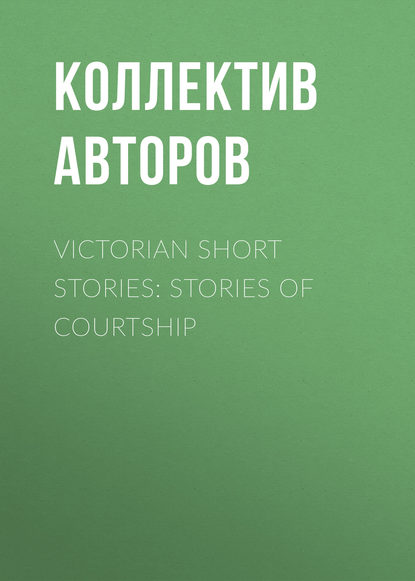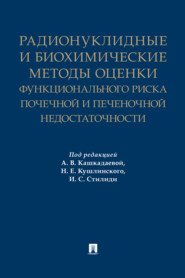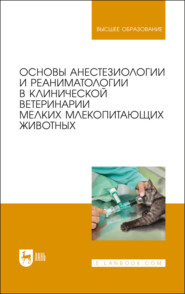По всем вопросам обращайтесь на: info@litportal.ru
(©) 2003-2024.
✖
Victorian Short Stories: Stories of Courtship
Настройки чтения
Размер шрифта
Высота строк
Поля
'I should have imagined that this would depend on what Patty thinks,' said Miss Le Smyrger, standing up for the privileges of her sex. 'It is presumed that the gentleman is always ready as soon as the lady will consent.'
'Yes, in ordinary cases it is so; but when a girl is taken out of her own sphere—'
'Her own sphere! Let me caution you, Master John, not to talk to Patty about her own sphere.'
'Aunt Penelope, as Patience is to be my wife and not yours, I must claim permission to speak to her on such subjects as may seem suitable to me.' And then they parted—not in the best humour with each other.
On the following day Captain Broughton and Miss Woolsworthy did not meet till the evening. She had said, before those few ill-omened words had passed her lover's lips, that she would probably be at Miss Le Smyrger's house on the following morning. Those ill-omened words did pass her lover's lips, and then she remained at home. This did not come from sullenness, nor even from anger, but from a conviction that it would be well that she should think much before she met him again. Nor was he anxious to hurry a meeting. His thought—his base thought—was this; that she would be sure to come up to the Colne after him; but she did not come, and therefore in the evening he went down to her, and asked her to walk with him.
They went away by the path that led by Helpholme, and little was said between them till they had walked some mile together. Patience, as she went along the path, remembered almost to the letter the sweet words which had greeted her ears as she came down that way with him on the night of his arrival; but he remembered nothing of that sweetness then. Had he not made an ass of himself during these last six months? That was the thought which very much had possession of his mind.
'Patience,' he said at last, having hitherto spoken only an indifferent word now and again since they had left the parsonage, 'Patience, I hope you realize the importance of the step which you and I are about to take?'
'Of course I do,' she answered: 'what an odd question that is for you to ask!'
'Because,' said he, 'sometimes I almost doubt it. It seems to me as though you thought you could remove yourself from here to your new home with no more trouble than when you go from home up to the Colne.'
'Is that meant for a reproach, John?'
'No, not for a reproach, but for advice. Certainly not for a reproach.'
'I am glad of that.'
'But I should wish to make you think how great is the leap in the world which you are about to take.' Then again they walked on for many steps before she answered him.
'Tell me, then, John,' she said, when she had sufficiently considered what words she would speak;—and as she spoke a dark bright colour suffused her face, and her eyes flashed almost with anger. 'What leap do you mean? Do you mean a leap upwards?'
'Well, yes; I hope it will be so.'
'In one sense, certainly, it would be a leap upwards. To be the wife of the man I loved; to have the privilege of holding his happiness in my hand; to know that I was his own—the companion whom he had chosen out of all the world—that would, indeed, be a leap upward; a leap almost to heaven, if all that were so. But if you mean upwards in any other sense—'
'I was thinking of the social scale.'
'Then, Captain Broughton, your thoughts were doing me dishonour.'
'Doing you dishonour!'
'Yes, doing me dishonour. That your father is, in the world's esteem, a greater man than mine is doubtless true enough. That you, as a man, are richer than I am as a woman is doubtless also true. But you dishonour me, and yourself also, if these things can weigh with you now.'
'Patience,—I think you can hardly know what words you are saying to me.'
'Pardon me, but I think I do. Nothing that you can give me—no gifts of that description—can weigh aught against that which I am giving you. If you had all the wealth and rank of the greatest lord in the land, it would count as nothing in such a scale. If—as I have not doubted—if in return for my heart you have given me yours, then—then—then, you have paid me fully. But when gifts such as those are going, nothing else can count even as a make-weight.'
'I do not quite understand you,' he answered, after a pause. 'I fear you are a little high-flown.' And then, while the evening was still early, they walked back to the parsonage almost without another word.
Captain Broughton at this time had only one more full day to remain at Oxney Colne. On the afternoon following that he was to go as far as Exeter, and thence return to London. Of course it was to be expected, that the wedding day would be fixed before he went, and much had been said about it during the first day or two of his engagement. Then he had pressed for an early time, and Patience, with a girl's usual diffidence, had asked for some little delay. But now nothing was said on the subject; and how was it probable that such a matter could be settled after such a conversation as that which I have related? That evening, Miss Le Smyrger asked whether the day had been fixed. 'No,' said Captain Broughton harshly; 'nothing has been fixed.' 'But it will be arranged before you go.' 'Probably not,' he said; and then the subject was dropped for the time.
'John,' she said, just before she went to bed, 'if there be anything wrong between you and Patience, I conjure you to tell me.'
'You had better ask her,' he replied. 'I can tell you nothing.'
On the following morning he was much surprised by seeing Patience on the gravel path before Miss Le Smyrger's gate immediately after breakfast. He went to the door to open it for her, and she, as she gave him her hand, told him that she came up to speak to him. There was no hesitation in her manner, nor any look of anger in her face. But there was in her gait and form, in her voice and countenance, a fixedness of purpose which he had never seen before, or at any rate had never acknowledged.
'Certainly,' said he. 'Shall I come out with you, or will you come upstairs?'
'We can sit down in the summer-house,' she said; and thither they both went.
'Captain Broughton,' she said—and she began her task the moment that they were both seated—'You and I have engaged ourselves as man and wife, but perhaps we have been over rash.'
'How so?' said he.
'It may be—and indeed I will say more—it is the case that we have made this engagement without knowing enough of each other's character.'
'I have not thought so.'
'The time will perhaps come when you will so think, but for the sake of all that we most value, let it come before it is too late. What would be our fate—how terrible would be our misery, if such a thought should come to either of us after we have linked our lots together.'
There was a solemnity about her as she thus spoke which almost repressed him,—which for a time did prevent him from taking that tone of authority which on such a subject he would choose to adopt. But he recovered himself. 'I hardly think that this comes well from you,' he said.
'From whom else should it come? Who else can fight my battle for me; and, John, who else can fight that same battle on your behalf? I tell you this, that with your mind standing towards me as it does stand at present you could not give me your hand at the altar with true words and a happy conscience. Is it not true? You have half repented of your bargain already. Is it not so?'
He did not answer her; but getting up from his seat walked to the front of the summer-house, and stood there with his back turned upon her. It was not that he meant to be ungracious, but in truth he did not know how to answer her. He had half repented of his bargain.
'John,' she said, getting up and following him so that she could put her hand upon his arm, 'I have been very angry with you.'
'Angry with me!' he said, turning sharp upon her.
'Yes, angry with you. You would have treated me like a child. But that feeling has gone now. I am not angry now. There is my hand;—the hand of a friend. Let the words that have been spoken between us be as though they had not been spoken. Let us both be free.'
'Do you mean it?' he asked.
'Certainly I mean it.' As she spoke these words her eyes were filled with tears in spite of all the efforts she could make to restrain them; but he was not looking at her, and her efforts had sufficed to prevent any sob from being audible.
'With all my heart,' he said; and it was manifest from his tone that he had no thought of her happiness as he spoke. It was true that she had been angry with him—angry, as she had herself declared; but nevertheless, in what she had said and what she had done, she had thought more of his happiness than of her own. Now she was angry once again.
'With all your heart, Captain Broughton! Well, so be it. If with all your heart, then is the necessity so much the greater. You go tomorrow. Shall we say farewell now?'
'Patience, I am not going to be lectured.'
'Certainly not by me. Shall we say farewell now?'
'Yes, if you are determined.'
'I am determined. Farewell, Captain Broughton. You have all my wishes for your happiness.' And she held out her hand to him.
'Patience!' he said. And he looked at her with a dark frown, as though he would strive to frighten her into submission. If so, he might have saved himself any such attempt.
'Farewell, Captain Broughton. Give me your hand, for I cannot stay.' He gave her his hand, hardly knowing why he did so. She lifted it to her lips and kissed it, and then, leaving him, passed from the summer-house down through the wicket-gate, and straight home to the parsonage.

















